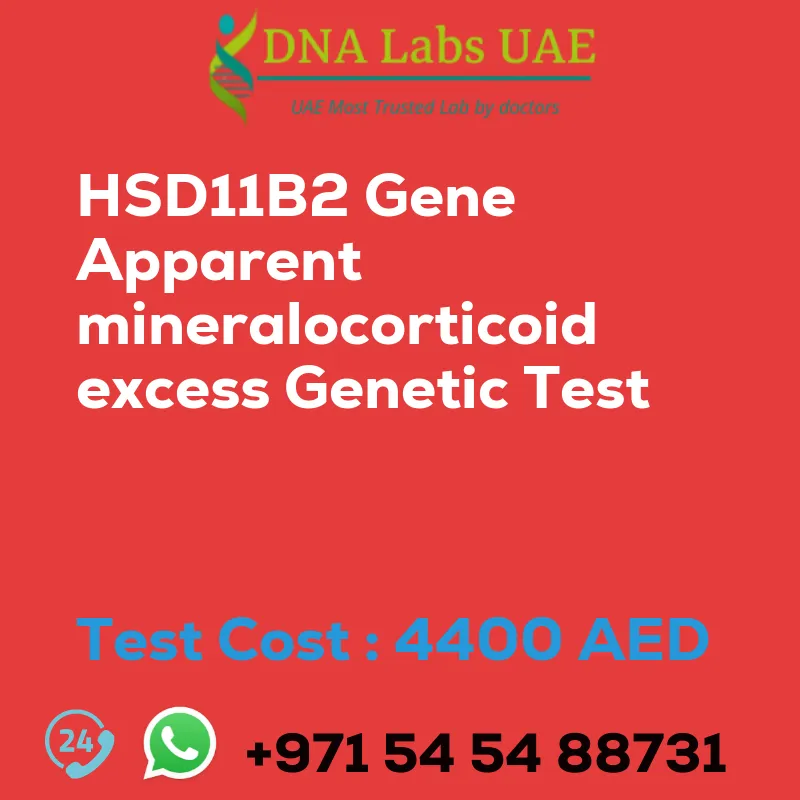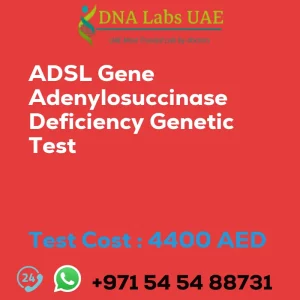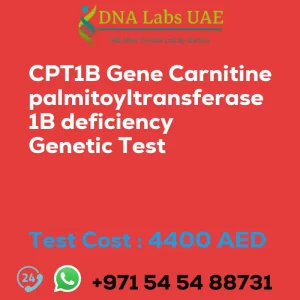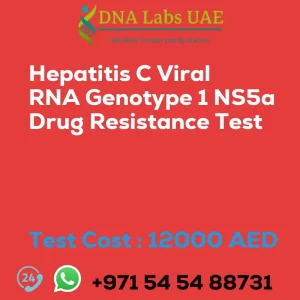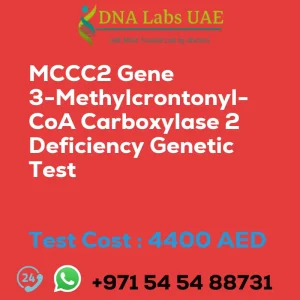HSD11B2 Gene Apparent mineralocorticoid excess Genetic Test
At DNA Labs UAE, we offer the HSD11B2 Gene Apparent mineralocorticoid excess Genetic Test for the cost of AED 4400.0. This test is used to diagnose individuals with Apparent mineralocorticoid excess (AME), a rare genetic disorder caused by mutations in the HSD11B2 gene.
Test Details
The HSD11B2 gene is responsible for encoding the enzyme 11-beta-hydroxysteroid dehydrogenase type 2 (11-HSD2), which regulates mineralocorticoid hormones, specifically aldosterone. Mutations in the HSD11B2 gene can lead to the overproduction of cortisol, a hormone with mineralocorticoid-like effects on the body.
Individuals with AME may experience symptoms similar to those seen in primary hyperaldosteronism, including hypertension, low potassium levels, and metabolic alkalosis.
Our NGS (Next-Generation Sequencing) technology allows us to analyze multiple genes simultaneously and identify genetic variations or mutations associated with AME. By identifying specific mutations in the HSD11B2 gene, this test can confirm a diagnosis of AME and provide crucial information for treatment and management strategies.
NGS genetic testing can also be used for carrier testing and prenatal testing in families with a known history of AME.
Test Information
- Components: HSD11B2 Gene Apparent mineralocorticoid excess Genetic Test
- Price: AED 4400.0
- Sample Condition: Blood or Extracted DNA or One drop Blood on FTA Card
- Report Delivery: 3 to 4 Weeks
- Method: NGS Technology
- Test Type: Metabolic Disorders
- Doctor: General Physician
- Test Department: Genetics
- Pre Test Information: Clinical History of Patient who is going for HSD11B2 Gene Apparent mineralocorticoid excess NGS Genetic DNA Test. A Genetic Counselling session to draw a pedigree chart of family members affected with Apparent mineralocorticoid excess
Please note that NGS genetic testing for AME should be conducted by a qualified geneticist or genetic counselor, who can interpret the results and provide appropriate genetic counseling and guidance.
| Test Name | HSD11B2 Gene Apparent mineralocorticoid excess Genetic Test |
|---|---|
| Components | |
| Price | 4400.0 AED |
| Sample Condition | Blood or Extracted DNA or One drop Blood on FTA Card |
| Report Delivery | 3 to 4 Weeks |
| Method | NGS Technology |
| Test type | Metabolic Disorders |
| Doctor | General Physician |
| Test Department: | Genetics |
| Pre Test Information | Clinical History of Patient who is going for HSD11B2 Gene Apparent mineralocorticoid excess NGS Genetic DNA Test A Genetic Counselling session to draw a pedigree chart of family members affected with Apparent mineralocorticoid excess |
| Test Details |
The HSD11B2 gene is responsible for encoding the enzyme 11-beta-hydroxysteroid dehydrogenase type 2 (11-HSD2). This enzyme plays a crucial role in the regulation of mineralocorticoid hormones, specifically aldosterone. Apparent mineralocorticoid excess (AME) is a rare genetic disorder that is caused by mutations in the HSD11B2 gene. This condition leads to the overproduction of a hormone called cortisol, which has mineralocorticoid-like effects on the body. As a result, individuals with AME may experience symptoms similar to those seen in primary hyperaldosteronism, such as hypertension, low potassium levels, and metabolic alkalosis. NGS (Next-Generation Sequencing) genetic testing is a method used to analyze multiple genes simultaneously and identify genetic variations or mutations that may be associated with a particular condition. In the case of AME, NGS genetic testing can be used to identify mutations in the HSD11B2 gene that may be responsible for the disorder. By identifying the specific mutations in the HSD11B2 gene, NGS genetic testing can help confirm a diagnosis of AME and provide important information for treatment and management strategies. It can also be used for carrier testing and prenatal testing in families with a known history of AME. It is important to note that NGS genetic testing for AME should be conducted by a qualified geneticist or genetic counselor, who can interpret the results and provide appropriate genetic counseling and guidance. |

